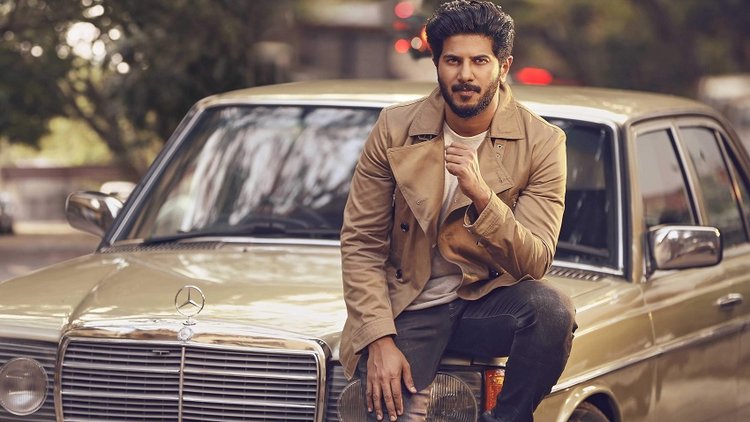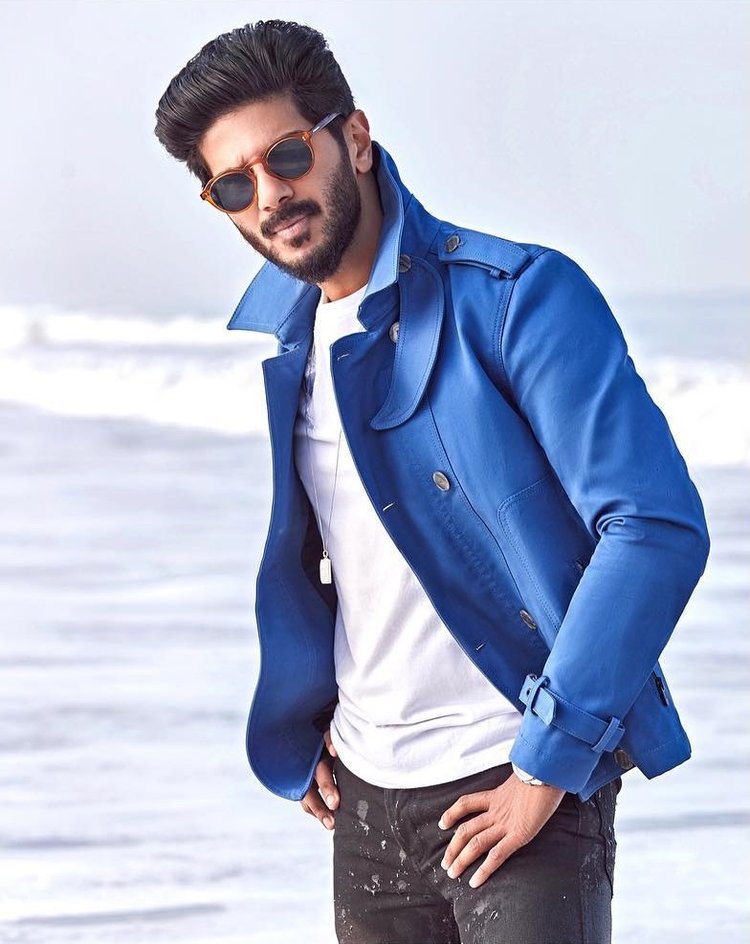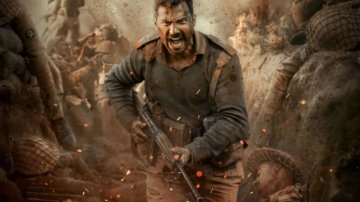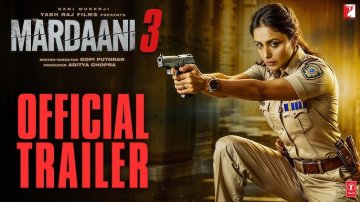Dulquer Salmaan Exclusive Interview: “I’m Not Against Commercial Cinema”
Mohnish Singh |Sep 30, 2019
Dulquer Salmaan predominantly works in Malayalam cinema, but he has also explored Tamil, Telugu and Hindi cinema. He was most recently seen in Hindi film The Zoya Akhtar (2019), co-starring Sonam Kapoor.
- Which Bollywood Actor Has Most Fans In World? Here Is The Powerful Top 5
- Most Handsome Actors In Bollywood – Love At First Sight Is A Real Thing
- Who Owns The Most Expensive House In Bollywood Industry?
Dulquer Salmaan predominantly works in Malayalam cinema, but he has also explored Tamil, Telugu and Hindi cinema. He was most recently seen in Hindi film The Zoya Akhtar (2019), co-starring Sonam Kapoor.
Dulquer Salmaan made his Bollywood debut with Karwaan (2018), also featuring Irrfan Khan in the lead role, and has built a small fanbase in the Hindi belt in no time.

Before the release of The Zoya Factor, STARBIZ caught up with dashing Dulquer Salmaan at a plush hotel in Mumbai and talked to him about a number of things, ranging from his choices of films to how he deals with failures and, also, the possibility of any collaboration with father Mammootty, and much more. Excerpts…
Dulquer, you have essayed a wide range of roles in your career and that too in different languages. What is the best part of being an actor, apart from the fact that you get to live so many lives?
The best part of being an actor, I think, is discovering all these parts of our country and the world. It is discovering all the different cultures, learning all these languages and learning the nuances of languages. And also, learning how different people in different parts behave.
Even Hindi can be spoken in so many ways. I think I like languages. So, for somebody like me, it is like the most rewarding thing. I mean you express differently in different languages.
Like I always say, you cannot express love so beautifully in Malayalam. They don’t have a lot of words for love but in Tamil and Hindi, you have so many words. Just to say “I love you” I feel Hindi has so many words or Tamil has so many words for that matter.
So, when I do movies in different languages, I get to explore these things and play differently. I think that is definitely the best part.
Majority of your films in Malayalam see you playing a simple character. It has been the same even in your debut Hindi film Karwaan (2018) where your character is very realistic. How do you try to be different in all these films?
In my personal film viewing habits, my personal books that I read, I really like slice-of-a-life. I want to be the most real person to believe it. I want to be so invested in the film that I feel like I am watching your lives, you guys are living your lives and you have a bad day or you know someone falls sick, or you have a good day at the office and you get a raise.
So, I am believing it, you know, and these fantastical things are not happening to you. So, this is my issue when I get offered a very commercial, mainstream cinema. I always have this logic issue. So, only when I believe I can play a certain role convincingly, I do it.
I have amazing respect for all our superstars who have so much conviction that they can do all these amazing things on screen and I am that member of the audience that is a huge fan and I hoot and scream.
Like Rajnikanth can do anything, Salman Khan can do anything. I believe it because they believe it. Now I don’t believe I can do all that. So, I think, I do the stuff that I believe I can connect to.

There was a time when Malayalam cinema was at its peak in the ’90s. Suddenly there was a time when it sort of went down. But with your films and a few more, it is back in the reckoning. So, do you feel the younger lot has got that thing back?
I think we are just lucky. I think what has happened is that audiences have changed. I think the 80s and early 90s was really a golden era. Directors like Padmarajan have made amazing realistic cinema and people had an appetite for that.
I am guessing, maybe once it moved on to other filmmakers, somewhere we kind of lost our way and we were doing stuff that other industries were doing. I think now we kind of have come back to what we do. I think I was lucky that I kind of entered during that amazing time when young filmmakers were telling young real stories of real people.
So, I think, I got really lucky in my timing when I came. So, for me, Farhad, even Prithiviraj Sukumaran for that matter, brought that era back. I feel that Prithvi Sukumaran came a little earlier. So, he had to, I feel, fight for that era where maybe we weren’t relating to our cinema so much.
Our timing was great. We met young filmmakers and the stories that they are trying to tell are the ones you can really connect to. They are very unique. Also, what I feel is that the audience has changed. Earlier, the practice would be that first, you would assist a filmmaker for 10 years and then spend 5 years convincing an actor to get your first film made.
But now you can make something on YouTube and somebody will notice it and be like “Hey, your short film is interesting. Do you have a full script?” So, what is happening is that young filmmakers are able to tell younger stories. I think your creativity is at such a high when you are young. Like you really want to change the world and you want to tell amazing stories. So, all of that is helping. I think that is really what is happening.
Every youngster in Kerala I see will have an SLR and they will be shooting amazing stuff. Even if it is a journey they go on, and you have access to all the information. Kids are learning to edit on their own. They edit on apps these days. So, all are very promising and I think that leads to younger filmmakers telling younger stories.
Have there ever been times when your father sat down and suggested you to probably do a lot more commercial cinema along with the path-breaking cinema that you usually do? In his career, he has always balanced it. Even today, he does so. His film The Great Father (2017) is in a purely commercial space and then he also does another film that is very unconventional. So, have you ever tried to exploring and balancing it?
I feel we are two different kinds of actor. He has done almost 400 films in his career and, I think, the kind of stuff he does, the kinds of risks he takes are definitely higher than mine. I think that has come with a lot of security, that has come with so many years of taking risks and having highs and lows.
Whereas I and my generation are a lot more paranoid. I think - I can speak for myself - every film of mine has to be amazing and I feel every film of mine has to be great. I am not against commercial cinema. I feel I understand great content and make it as commercial as possible. When I first heard the script of Charlie (2015), in my head, it was a very festival film. That is how I saw it.
It was me and the writer who had discussed it and a lot of directors came on board but we could not find the right guy to helm it. Then Martin (Prakkat) came on board and added all of these colours to the film, which I did not see honestly. So, he wanted it to shoot in a certain way, he wanted Kerala to look in a certain way, he wanted the music to be a certain way, he wanted us to dress a certain way.
You know, Parvathi’s character has to be a certain way, that I understand. You can give me content and I will picture it as big as we can. I don’t know how to work on that backward. You cannot make a full commercial film and then add art to it. You know I feel like my brain doesn’t cross that. But having said that, if a great commercial film comes my way and it is also, in my head, strong in content, I will do it.
But again, can you convince him to do a film that suits you. He had also done a film Dr Babasaheb Ambedkar (2000) long back when nobody was even attempting to do such type of biopics?
He does all kinds of films. Not with me. I do not think he will ever act with me. I know it. Even he says, “You know, it is nice that we have different identities.” I generally believe that there is a percentage of people who have seen my films and have not known that I am Mammootty’s son.
Maybe not in Kerala but other parts of India. They are not connecting immediately back to my dad. I do not even have his name in my surname and I think he strongly believes in separate identities, not coming together. He does not come with me to events.
If we have to go for an event, he will ask me, “When are you going?” I will be like, “I am going at 6.” And then, he will probably go at 8. He is so particular.
You said that you want all your films to be amazing, but what if it didn’t turn out to be like how you expected it to be. Then how do you deal with it?
If I know my intentions were right and I tried my best, I am okay with it. I will make peace with it. If I feel I am doing this film for the wrong reasons like I don’t like the script but the director is good, the film will make some news or something or I need the money or something like that, then I will be scared.
Because then when the film comes out, I don't know if it has substance and if it fails, I feel blamed. But if I feel like I am backing something that has substance, but if it fails, I am okay with it. I will be like I tried my best; my intentions were right, I am trying to do the right thing if it doesn’t resonate with the audience, that’s okay. It depends on their mood; it depends on the taste. You can never predict what they are going to like.
Right now, it is a season of the biopic and by the time you make a biopic, maybe the season will be of real-life crimes depiction and then they will change it to something else. So, you cannot read them and make movies for them. It is like you will have a surprise.
>>> Related post: “The Zoya Factor” (2019) Full Moive Available For Online Download
- Tag


Comments
Sort by Newest | Popular